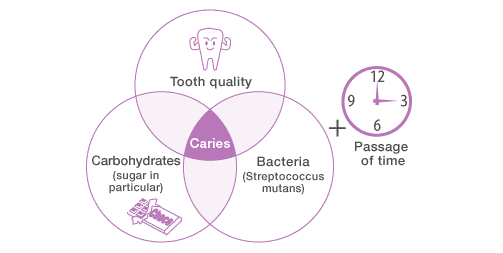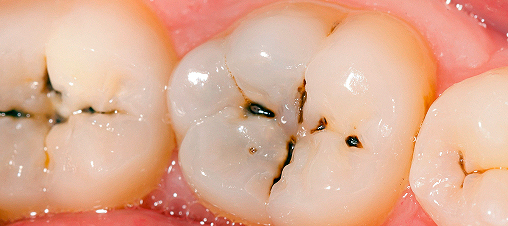My patients often ask me this question. “Why am I getting cavities on my teeth even though I brush my teeth regularly where as my partner does not get it even though he/she is not strict with the oral hygiene!”
This because the dental caries is a multifactorial disease caused by the co-existence of three main factors: bacteria/microorganisms, carbohydrates derived from the diet, and host factors such as tooth and saliva quality.

So even though a good oral hygiene reduces the chances of getting cavities on teeth by removing bacteria from your oral cavity, other factors such as quality of your teeth and saliva, your dietary habits etc. can still contribute in forming cavities on your teeth.
Dental Cavity
Dental cavities or Tooth decay is one of the most common diseases affecting the human population.

Dental cavity is the destruction of your tooth enamel — the hard, outer layer of your teeth and subsequently inner layers of your teeth. Plaque, a sticky film of bacteria, is constantly forming on your teeth. When you eat or drink foods or beverages containing sugars, the bacteria in plaque produce acids that attack tooth enamel. The cavity begins when bacteria inflicts damage on the hard surface of the teeth, and the destruction will spread into the deeper layers if left unchecked.
Cavity Prevention Methods
If you are cavity-prone, please understand that the issue is largely preventable! Regular care of your teeth and a healthy diet can be enormously helpful in warding off this decay of your pearly whites.
As they say, an ounce of prevention is worth a pound of cure. Being diligent and consistent in oral care can go a long way toward helping you avoid cavities. This includes brushing at least twice a day and flossing at least once a day. If you can’t brush after a meal, rinse your mouth thoroughly with water.
Aside from oral care, several dietary practices can guard against cavities. Eating tooth-healthy foods such as fresh fruits, vegetables, cheese and other dairy products, will help. Don’t drink too many sweetened beverages because the sugar they contain will fuel the cavity-forming process. Avoid frequent snacking and drinks other than water throughout the day to prevent putting your teeth under even more assault from the acids created by the bacteria in your mouth.
When to See a Dentist
Since no symptoms are associated with the early stages of cavity formation, you should see a Dentist Endeavour Hills once or twice a year for a cleaning and examination. It is important to find trouble spots and stop them in their tracks before they develop into a major problem. Also, if you are experiencing tooth pain or sensitivity, make a dental appointment as soon as possible.

In early stages, cavities can be treated by removing the decayed portion of the tooth and restoring it with white fillings. If the cavities are left untreated for long periods, it progresses inside the teeth and eventually affects the nerve of the teeth. If it reaches in the nerve of the teeth it often requires a Root canal treatments or an Extractions of those affected teeth. It is therefore very important to treat the cavities in its early stages to prevent major dental treatments and also to preserve the tooth in its natural form.

